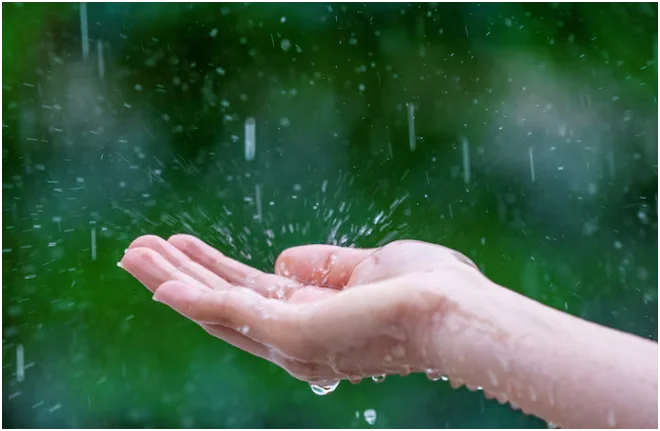Water is one of the most essential natural resources on Earth. Without it, life as we know it simply wouldn’t exist. While we often rely on municipal sources like dams, rivers, and underground aquifers for our water needs, there’s another valuable and often underutilized source: rainwater. This natural gift from the skies has supported ecosystems, agriculture, and communities for centuries. As water scarcity becomes a growing concern across many parts of the globe, it’s time to ask: why is rainwater important, and how can we better utilize this free and renewable resource?
The Value of Rainwater in Today’s World
In recent years, the conversation around water conservation has grown louder. Climate change, rapid urbanization, and increasing demand have placed significant stress on traditional water supplies. In this context, rainwater harvesting, the practice of collecting and storing rain for future use, offers a practical, sustainable solution.
Rainwater can be used for a variety of purposes: irrigation, toilet flushing, laundry, industrial processes, and, with proper treatment, even drinking. When collected and used efficiently, rainwater reduces the burden on municipal water systems and groundwater reserves.
In developing regions or remote areas where infrastructure is lacking, harvested rainwater can serve as a vital lifeline, providing communities with a reliable and clean water source. Even in highly developed countries, integrating rainwater systems can promote sustainability and self-sufficiency.
Environmental Benefits of Rainwater Harvesting
Harnessing rainwater isn’t just a smart way to meet water needs – it also has a range of positive environmental impacts. Below are some of the most important ecological benefits of collecting and using rainwater.
1. Reduces Pressure on Groundwater
Many cities and agricultural areas rely heavily on groundwater for their daily needs. However, over-extraction of groundwater can lead to the depletion of aquifers, land subsidence, and deteriorated water quality. By using rainwater for irrigation and other non-potable purposes, we can help preserve groundwater reserves and extend their lifespan.
2. Minimizes Surface Runoff and Erosion
When it rains, much of the water flows over impervious surfaces like roads, rooftops, and pavements, collecting pollutants before entering storm drains and eventually rivers and oceans. This surface runoff can contribute to flooding, water pollution, and soil erosion. Rainwater harvesting systems capture and store rain at its source, preventing it from becoming polluted runoff and helping mitigate urban flooding.
3. Supports Plant and Soil Health
Using rainwater in gardens and landscapes is a great way to promote plant health. Unlike treated municipal water, which often contains chlorine and other chemicals, rainwater is soft and chemical-free, making it ideal for plants. Additionally, watering your garden with rainwater can reduce the leaching of nutrients from the soil, improving soil structure and fertility over time.
4. Reduces Energy Consumption
Treating and transporting municipal water requires significant energy, contributing to carbon emissions and the depletion of natural resources. Rainwater harvesting reduces reliance on energy-intensive water treatment plants and long-distance piping systems. On a large scale, widespread rainwater use can help lower the carbon footprint associated with water supply and distribution.
5. Promotes Ecosystem Resilience
In areas where rainwater harvesting is practiced at scale, local ecosystems benefit from more stable water tables, improved biodiversity, and healthier waterways. Less surface runoff means fewer pollutants entering rivers and lakes, leading to better water quality and more robust aquatic life.
Conclusion
Rainwater is much more than a natural phenomenon – it’s a free, sustainable, and often overlooked resource that holds the potential to alleviate many of the water-related challenges we face today. By adopting rainwater harvesting techniques in our homes, businesses, and communities, we can reduce our dependence on traditional water supplies, lower our environmental footprint, and build greater resilience in the face of climate change.
With the tools and knowledge readily available, there’s never been a better time to harness the power of rain. Whether it’s installing a rain barrel in your backyard or advocating for larger-scale rainwater infrastructure in your city, every drop counts. Rainwater is not just important, it’s essential.
Frequently Asked Questions
What makes rainwater important for the environment?
Rainwater plays a vital role in maintaining the balance of natural ecosystems. It replenishes groundwater supplies, supports plant growth, and provides hydration for wildlife. When harvested and used thoughtfully, rainwater can reduce surface runoff, prevent erosion, and protect water bodies from pollution. Additionally, using rainwater instead of treated municipal water can help conserve energy and reduce carbon emissions associated with water treatment.
Can rainwater be used for drinking?
Yes, rainwater can be made safe for drinking, but it requires proper collection and filtration. Raw rainwater may contain contaminants like dust, bird droppings, and pollutants from roofing materials. However, with the right infrastructure, such as first-flush diverters, filtration systems, and UV treatment, rainwater can meet potable water standards. In many rural or off-grid communities, purified rainwater is a primary source of drinking water.
Before using rainwater for consumption, it’s essential to test the water quality and follow local regulations regarding rainwater use.
How does rainwater contribute to water conservation?
Rainwater is a renewable, decentralized water source that can reduce our dependence on traditional water systems. By collecting and using rainwater for everyday tasks, like flushing toilets, washing clothes, watering gardens, or even cooling industrial machinery, we can significantly cut down on the volume of treated water needed from municipal sources. This not only conserves drinking water but also reduces the energy and infrastructure costs associated with water treatment and distribution.
In areas with frequent droughts or water restrictions, harvesting rainwater provides a buffer against supply shortages, allowing individuals and communities to maintain essential activities even during dry periods.
By embracing rainwater harvesting and understanding the critical role that rainwater plays in the environment, we can take meaningful steps toward a more sustainable and water-secure future. It’s time to recognize rainwater not just as precipitation, but as a powerful natural resource waiting to be put to good use.


